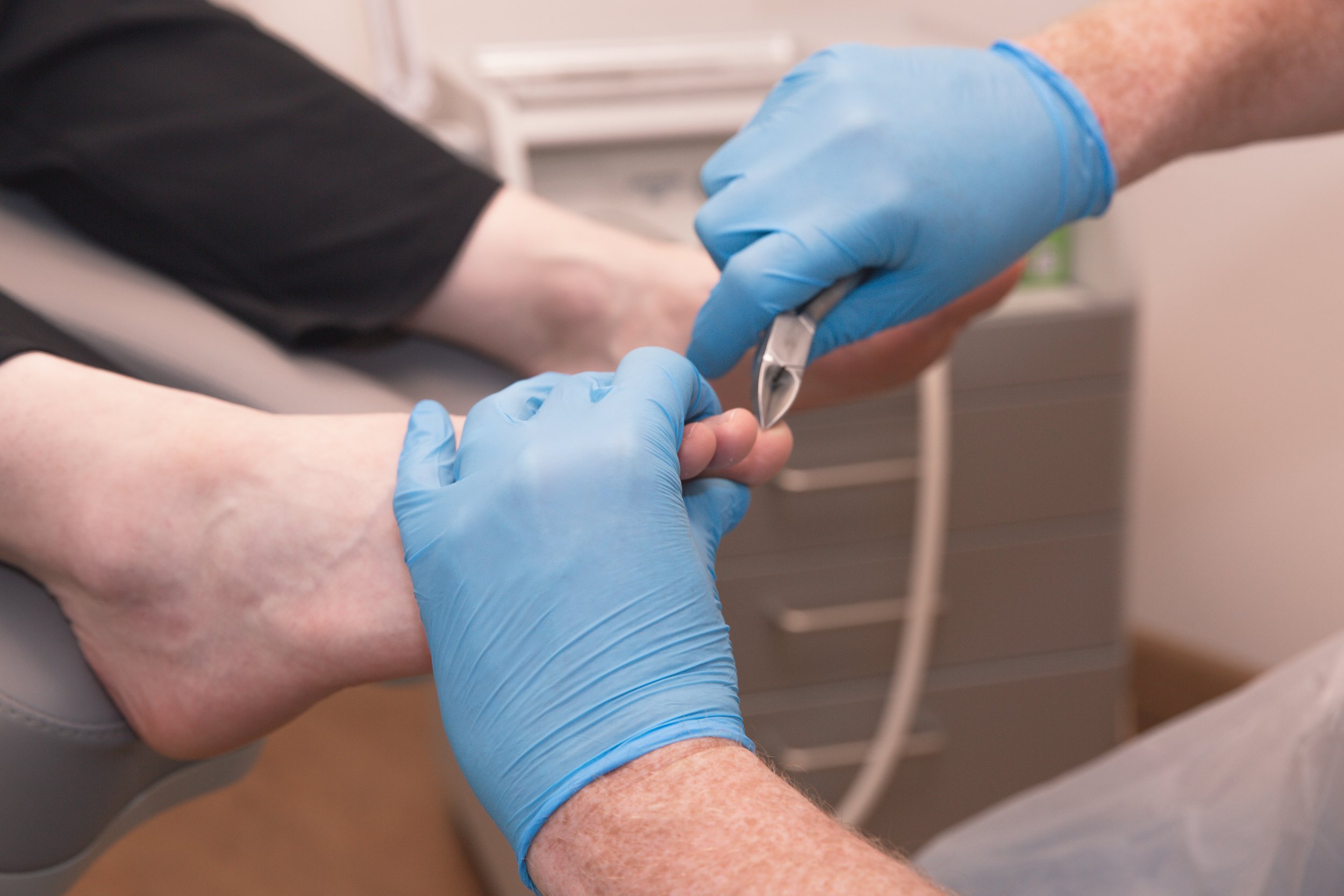
Diabetic footcare.
What Is Diabetic Footcare?
For those living with diabetes, taking care of our feet is important. Foot ulcers, which affect as many as one out of ten people with diabetes, can easily develop from minor wounds and blisters to posing a threat of amputation. Even small ulcers on your feet can lead to a serious infection if not treated correctly. Ulcers can heal very slowly, which can put your health at risk. If you notice any swelling, redness, or pain around an ulcer on your foot, it's important to get it checked out by a podiatrist as soon as possible.
So for people with diabetes, it is essential that we know how to take care of our feet, especially if we are at risk of developing foot ulcers. Alongside other good diabetes management habits, taking care of your feet is an absolute must-have part of your overall diabetes care.
Why is foot care so essential?
High blood glucose levels over a period of time can lead to diabetic neuropathy, a condition in which the nerves in your feet or legs may become damaged. If this happens, you may experience loss of sensation putting you more at risk of ulceration and therefore infection. This can be extremely debilitating, as it will make everyday activities such as getting out of bed or walking difficult if not impossible.
It is common for people with diabetes not to feel foot problems until they have developed, so it's important to have regular foot examinations from a highly trained podiatrist like ourselves.
Caring for your feet
Foot care involves taking preventive measures to prevent damage from occurring and regularly checking your feet for any signs of wear or tear. Damage can be avoided by wearing properly fitted shoes and by keeping your feet clean and dry. By maintaining good foot health, performing routine nail care and having a thorough foot exam, you can help to prevent serious foot problems. Checking your feet every day is essential in detecting any damage before it becomes severe.
You should perform a regular foot check or examination to avoid any serious foot problems. This is especially important if you are having trouble with circulation and numbness. If you have problems checking your feet, you may need assistance from a health care professional or podiatrist. When checking your own feet, you should be sure to look out for signs of foot damage that include:
Cuts, sores & grazes
Any form of bruising or swelling
Changes in colour
Ulceration
Hard and dry or cracking skin
If you are looking for a thorough foot exam in Sheffield, don’t hesitate to contact us, we will be happy to provide you with an assessment to ensure your feet are in their best condition.
Athletes Foot
This is a fungus that can grow on your feet. It causes redness, itching and cracking. This is especially bad for those with diabetes as the cracking in your skin allows the infection to pass through.
Fungal Nail Infections
An infected nail may become discoloured, thick and brittle and can often be challenging to treat, with most over-the-counter methods proving unsuccessful.
Calluses
A callus is a buildup of hard skin, usually found on the bottom of the foot. They are often caused by an uneven distribution of weight or poorly fitting shoes.
Bunions
These typically form when your big toe bends towards your second toe. It is possible for them to run in the family; however, they're often caused by wearing high heels that squeeze your toes together and other ill-fitting shoes.
Dry Skin
This may seem like only a minor problem, but for people with diabetes, this problem can be made a lot worse. It can cause cracking in the skin and allow germs and bacteria to pass through.
Diabetic Foot Ulcers
A foot ulcer is a deep sore or break in the skin that could quickly become infected. They can be caused by minor cuts and heal much slower on the feet of diabetic people due to reduced circulation. Up to 10% of people with diabetes will at some point suffer from foot ulcers.
Anyone is susceptible to the foot problems below, but for people with diabetes, these common foot problems can be even more dangerous as they could lead to infection, amongst other complications.
Services Offered
Podiatrists excel at assessing the diabetic foot. We provide doppler circulation and sensation checks and review your foot structure and skin. If you have diabetes, you should book regular foot health checks to ensure that your feet are pain-free.
We provide routine nail care and podiatry treatments for people with diabetes.

